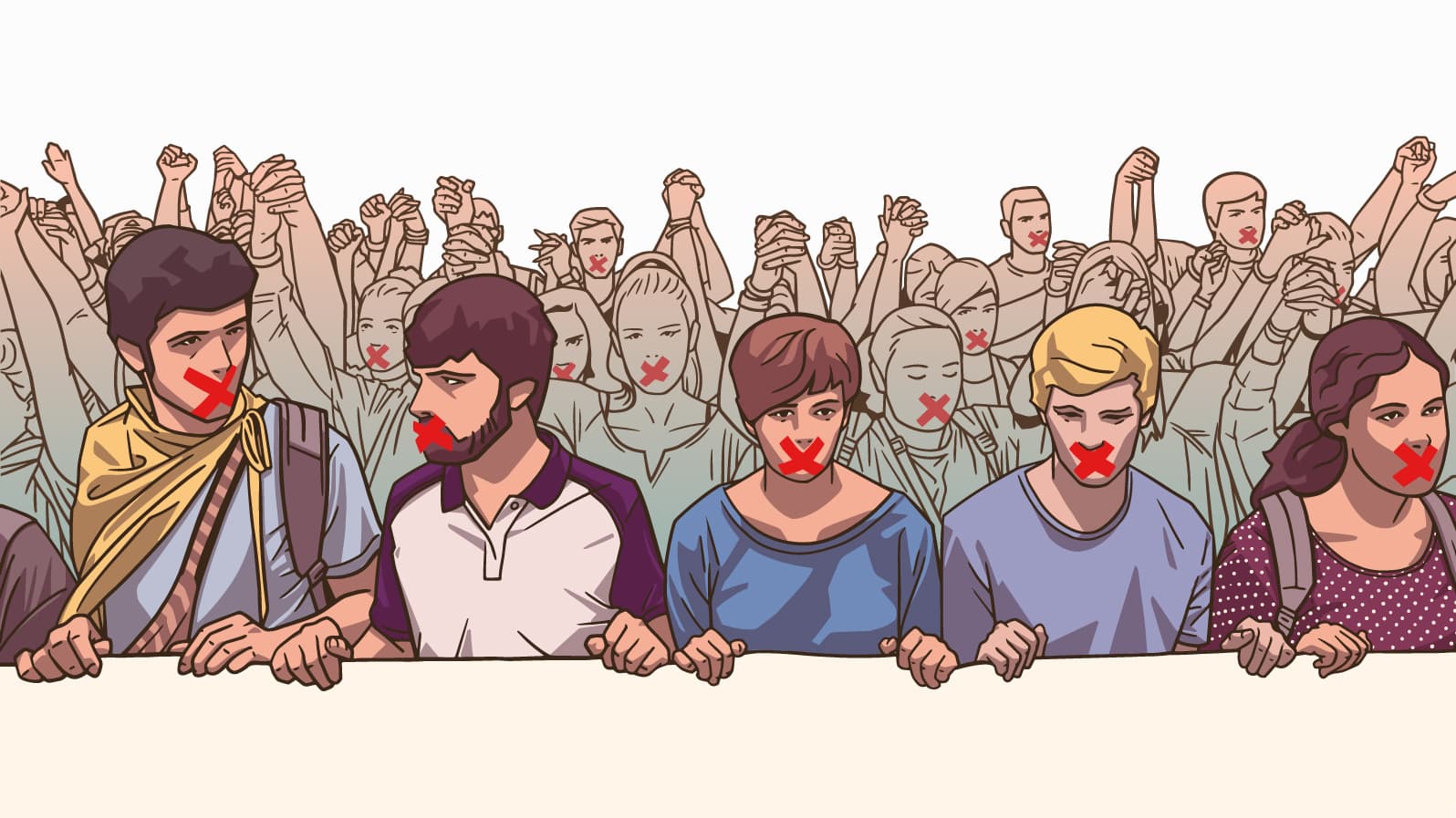
Internet Censorship Is Extremely Dangerous, And It Makes Me Feel Unsafe In A Time Of Political Unrest
“My definition of a free society is a society where it is safe to be unpopular.” –Adlai Stevenson
It’s no secret that speech censorship has been used by authoritarians as a form of dampening dissent and controlling the narrative. Through the years we were occasionally surprised by headlines that would highlight the newest form of censorship being enacted against people in a faraway land. It wasn’t until recently, however, that those instances became too close for comfort. Despite our best efforts, political censorship is now here, and apparently, it’s here to stay.
In this time and age, the government isn’t the only one that can possess the power to silence individuals. In America, specifically, our Constitution’s First Amendment prevents the government from taking such actions. Corporations, however, aren’t subject to such rules, and, as private companies, they can make their own judgment on whose speech is acceptable and safe to be kept on their platform and whose speech must be erased, even if such guidelines aren’t always clear as to what behavior is being frowned upon.
The Power of Social Media Companies
The importance of social media has become clear through the sheer number of its users. Worldwide, roughly 3.8 billion people use social media to communicate through texts, pictures, or videos, to run their businesses, and to educate or influence those in the community, especially the youth. It’s modern day’s most popular and most broad-reaching form of social interaction, and, in times such as the COVID pandemic, in which many of us have been deprived of real-life interactions, social media networks harness an unimaginable amount of power over our lives.
Roughly 3.8 billion people use social media to communicate.
Humans are de facto social beings. We live and thrive in communities and have a need for interaction. We enjoy spending time with friends and family, and when those opportunities to interact move to the virtual world, could censorship from such networks actually be a form of indirect social and psychological punishment?
The dehumanization and erasing of an individual’s ability to join virtual communities and interact with their loved ones seems almost like a prison of sorts. And, for what crime are you being sent away?
Laws Haven’t Caught up to Internet Usage
The laws around what can or can’t be done on the internet are still lacking. Lawmakers are slow to adjust and to understand the plight and angst that comes from being isolated from the community and essentially gagged for reasons that aren’t always transparent.
When they ban people for “speech considered offensive to a group of people,” they operate under mob rule.
Social media does have fair rules against speech that encourages violence and other illegal behavior, but when they start to actively ban people for things such as “hateful conduct” or “speech considered offensive to a group of people” and other greyish terms, without the need to clarify what their position was based on and without a proper method to allow for a realistic appeal, they essentially operate under the mob rule and tolerance is no longer a part of this equation.
Companies Involve Themselves in the Political Sphere through Lobbying
While many would suggest that these companies’ social responsibility efforts are none of our business, as these are private companies, I would beg to differ in the sense that these companies get involved directly with our political and governmental systems through means of lobbying and campaign funding. They’re attempting to milk the best of our governmental system while neglecting the Supreme Law of the Land.
Facebook, for example, according to The Verge “has spent $7 million in campaign contributions.” We’re left to wonder, why would a social media company need to fund political campaigns, and what’s in it for them?
Social media companies get involved with our political systems through lobbying and campaign funding.
The conflating of corporate goals, money, and public policy, combined with their clear disregard for freedom of speech and overall murky user rules, make me extremely uncomfortable with the power these companies hold over our lives and our constitutionally given rights. They have found a loophole to censor the people, and lawmakers choose to look the other way. Could it be because of the hefty campaign donations? I wouldn’t dare to assume so…
The Rise of Censorship in America Parallels Socialist Countries
As a woman who lived through Socialism, all of this hits way too close to home. The Socialist party stayed in power for 16 years in Brazil and the fear of speaking badly about the government through texts and having our access to texting apps taken away were a reality we had to learn to live with.
In China and in many other countries that are under authoritarian rule, simply speaking your mind regarding the actions of the government could get you arrested or killed. In America, it hasn’t gotten to that point yet. You will simply be cast away from virtual society and interactions, and in times where no one gets their news from printed papers anymore, your ability to effectively communicate with others will be close to none.
I feel very unsafe in a society where my voice can be erased forever.
I, personally, feel very unsafe in a society where my voice can be erased forever and I can be dehumanized and ostracized into irrelevancy for simply making a joke or a political comment.
Closing Thoughts
It’s time that social media companies are held accountable for the role they represent in society and that they begin to clearly act upon the socially responsible goals they claim to have, by ensuring that everyone, regardless of where they stand on the political spectrum, can have a voice and can actively contribute to the dialogue we need to promote and foster a continuously better nation.